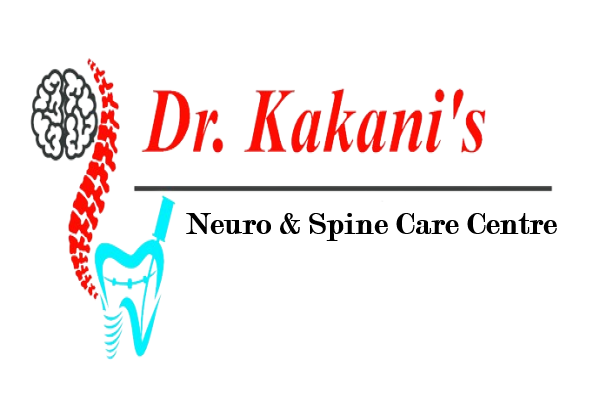Surgery for a pituitary tumor is known as transsphenoidal surgery, and it is the most common approach for removing pituitary tumors. The pituitary gland is located at the base of the brain, and a transsphenoidal approach involves accessing the pituitary gland through the sphenoid sinus, a hollow space behind the nasal passages. This method typically results in a quicker recovery and fewer complications compared to other surgical approaches. Here's a general overview of the surgical process: Preparation: Before surgery, the patient may undergo various diagnostic tests such as MRI or CT scans to precisely locate and characterize the tumor. Anesthesia: The surgery is performed under general anesthesia to ensure the patient is unconscious and doesn't feel any pain during the procedure. Accessing the Pituitary Gland: The surgeon enters through the nose or upper gum to reach the sphenoid sinus, creating a small opening. Removal of Tumor: Using specialized instruments and sometimes a microscope or endoscope for better visualization, the surgeon removes the tumor. The goal is to extract as much of the tumor as possible without causing damage to surrounding structures. Closure: Once the tumor is removed, the surgical opening is closed. If the surgery was performed through the nose, there may be no external incisions. Recovery: Patients typically spend a day or two in the hospital after the surgery for monitoring and recovery. Some may experience mild nasal congestion, but overall, recovery is often faster compared to other brain surgeries. It's important to note that not all pituitary tumors require surgery. The approach to treatment depends on factors such as the type and size of the tumor, its effect on hormone production, and the patient's overall health. In some cases, medications or radiation therapy may be used instead of or in addition to surgery. As with any surgical procedure, there are potential risks and complications, and outcomes can vary. Patients should discuss their specific situation, treatment options, and potential risks with their healthcare team.

This is your website preview.
Currently it only shows your basic business info. Start adding relevant business details such as description, images and products or services to gain your customers attention by using Boost 360 android app / iOS App / web portal.
Services
Neck pain and backache can have various causes, and it's essential to identify the specific factors contributing to your discomfort. Here are some common causes: Neck Pain: Muscle Strain: Overuse or poor posture can strain the neck muscles, leading to pain. Poor Ergonomics: Incorrect positioning of the head and neck while working or sleeping can contribute to neck pain. Text Neck: Excessive use of smartphones or devices, leading to prolonged forward head posture. Herniated Disc: The cushions between the vertebrae can rupture, causing pain and potentially compressing nearby nerves. Arthritis: Osteoarthritis or rheumatoid arthritis can affect the joints in the neck, leading to pain and stiffness. Whiplash: A sudden jerking motion of the head, often due to car accidents, can cause neck strain. Stress and Tension: Emotional stress can contribute to muscle tension, leading to neck pain. Back Ache: Muscle Strain: Overexertion, lifting heavy objects incorrectly, or sudden movements can strain back muscles. Poor Posture: Slouching or maintaining an improper posture can put stress on the spine and lead to back pain. Disk Problems: Herniated or bulging discs can press on nerves, causing back pain. Sciatica: Compression or irritation of the sciatic nerve can result in lower back pain that radiates down the leg. Arthritis: Osteoarthritis or inflammatory arthritis can affect the spine and cause back pain. Scoliosis: Abnormal curvature of the spine can lead to chronic back pain. Spinal Stenosis: Narrowing of the spinal canal, often associated with aging, can cause back pain and leg discomfort. Strains and Sprains: Injuries to ligaments or tendons in the back can cause pain. Kidney Stones: Back pain can be a symptom of kidney stones. Infections and Tumors: In rare cases, infections or tumors in the spine can cause back pain. It's crucial to consult with a healthcare professional to determine the specific cause of your neck pain or backache. They can conduct a thorough examination, order imaging tests if necessary, and recommend an appropriate treatment plan based on the underlying cause.
Epilepsy is a neurological disorder characterized by recurrent, unprovoked seizures. Seizures are episodes of disturbed brain activity that can cause changes in behavior, sensations, and sometimes loss of consciousness. Epilepsy can affect people of all ages, and its causes are diverse. Here are some key points about epilepsy: Causes: Epilepsy can have various causes, including: Genetic Factors: Some forms of epilepsy have a genetic component, meaning they can run in families. Brain Injury: Traumatic brain injury, stroke, infections, and other conditions that affect the brain can increase the risk of developing epilepsy. Developmental Disorders: Conditions like autism and neurofibromatosis can be associated with epilepsy. Brain Tumors: Tumors in the brain can trigger seizures. Types of Seizures: There are different types of seizures, and they can present in various ways. Seizures can be broadly classified into two main types: Focal Seizures: Begin in one area of the brain. Generalized Seizures: Involve the entire brain. Diagnosis: Diagnosis is typically based on a detailed medical history, including descriptions of seizure episodes, and various diagnostic tests such as electroencephalogram (EEG), brain imaging (MRI or CT scan), and blood tests. Treatment: Medication: The primary treatment for epilepsy is antiepileptic medication. The choice of medication depends on the type of seizures and individual factors. Lifestyle Modifications: Maintaining a regular sleep schedule, managing stress, and avoiding triggers can help reduce the frequency of seizures. Surgery: In some cases, surgery may be considered, especially if seizures are not well-controlled with medication and if there is a specific area of the brain responsible for the seizures. Living with Epilepsy: People with epilepsy can lead full and productive lives. With proper management and treatment, many individuals can achieve seizure control. It's essential for individuals with epilepsy to work closely with healthcare professionals to find the most effective treatment plan for their specific condition. First Aid for Seizures: Bystanders and caregivers should be aware of basic first aid for seizures, which involves ensuring the person's safety, protecting them from injury, and staying with them until the seizure ends naturally. It's important to note that epilepsy is a spectrum disorder, and the experiences of individuals with epilepsy can vary widely. Some people may have well-controlled seizures with medication, while others may face challenges in managing the condition. Regular follow-ups with healthcare providers and adherence to treatment plans are critical for optimal management of epilepsy.
Have any question or need any consultation?
Online appointment booking is not available right now.
Appointment Confirmed
Your appointment ID is
| Doctor Name: | |
| Date & Time: | |
| Contact: | +917276135101 |
| Address: | Medicure multispeciality clinic, Ground Floor, Shree Radhe heights, opp. Niti Gaurav Complex, near Lokmat chowk, Ramdaspeth, Nagpur, Maharashtra 440012, India |
| Appointment fee: | |
| Payment mode: | |
| Join video call at: |
Thanks for choosing us.Your appointment details has been shared on your mobile number as well. Please arrive atleast 10 minutes ahead of the scheduled time.
Success
